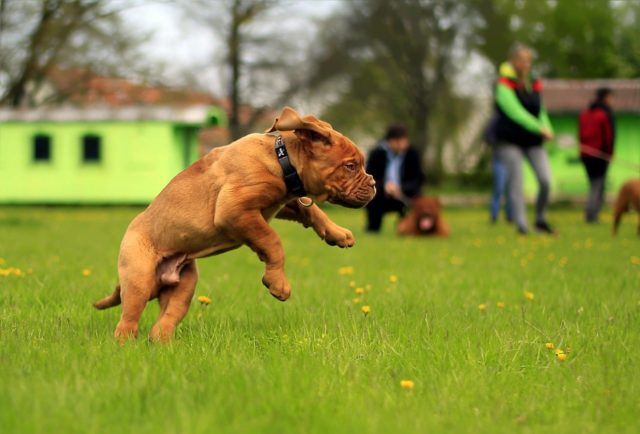
Going to dog parks is one of the things that dogs love. This is where they get to run and socialize with their fellow furry friends. If you have a new dog and are planning to bring your little pooch in the park, here are a few reminders about the things that you need to know before going to the dog park.
If you follow the guidelines below, then you will have a successful trip to your local dog park.
Don’ts:
- Do not bring your dog that’s below 16 weeks old or that hasn’t been fully vaccinated to the dog park. Their immune system is not yet strong enough to fight different bacteria and diseases that they could get exposed to. Making them socialize with adult dogs that are a lot bigger than them could potentially injure them too. And, because they haven’t had an extensive training yet, they could also pick up some bad habits from untrained or undisciplined older dogs.
- Don’t bring your dog to the dog park if he’s ill, showing signs of illness, or injured. Making him play freely in the park could get other dogs sick or make his condition worse.
- If your dog is aggressive, don’t bring him to the park. This will be a risk to other dogs and humans playing in the park. Look for other ways to exercise and play with your dog instead, like behavior modification and other forms of training.
- Don’t bring your intact female dog that’s in heat to the dog park. If another intact male dog is also there, which couldn’t control himself, unplanned breeding will most likely happen. What’s even worse is, if there are two or more intact male dogs are around, there’s a risk that they’d fight over your dog.
- As much as possible, don’t bring your intact male dog to the park. Based on statistics, they are more likely to get involved in aggression. If you DO bring them in the park, be very careful and make sure that they are outstandingly trained and socialized.
- Babies or small children should not be brought to the dog park too. Just like young puppies, children’s immunity is still weak. Making them roam around the park with strange dogs exposes them to many harmful bacteria and parasites. There are also times when dogs could get a little too curious of your baby. Or they could run into your baby or children while playing. There are also times when a dog’s predatory drive is triggered by running children. You’ll never know what disaster awaits your baby.
- Don’t bring your dog’s toys, especially if he has possession aggression issues.
Dos:
- Socialize your dog in a controlled environment before bringing him to a dog park. This way, you have the assurance that things won’t turn bad, since your dog already knows how to act around other dogs and other people.
- Ensure that your dog has a good training foundation, especially with basic obedience cues. This would give you good verbal control over him even if he’s off-leash and during an emergency.
- Before getting in, read the rules posted outside the dog park’s gate. Follow the instructions, as this will be beneficial to you, your dog, and the others too. Check if the park is already overcrowded or if there’s an aggressive behavior in the park too.
- Remove your dog’s leash if it’s an off-leash park. This is for your dog not to feel vulnerable and defensively lash out.
- If there are dogs that are guarding the gate as you enter, wait until they leave before letting your dog in. Ask for help from their owners if needed.
- Bring your dog to their designated area (i.e. small dogs to small dog area or big dogs to big dog area). If everyone shares the entire park, make sure that your dog is playing with dogs that are close to his size. This way smaller dogs are not at risk.
- Bring bags, clean up after your dog, and dispose of the bags properly. This way no one will step on the poop. This will also prevent other dogs from eating or rolling on your dog’s poop.
- Know that your dog is your responsibility while at the park, so supervise him at all times. Call him away if he’s not behaving well or bring him home if he gets bored, tired, or out of control.
Related Articles
Living in the city is very different from living in the country, especially for Fido. Take a look at some handy tips and information on how to move a country dog to the city
Taking your pup away with you? We’ve got some great information on how to bring your pet with you on vacation
All animals communicate with each other. Ever wondered how dogs communicate?








